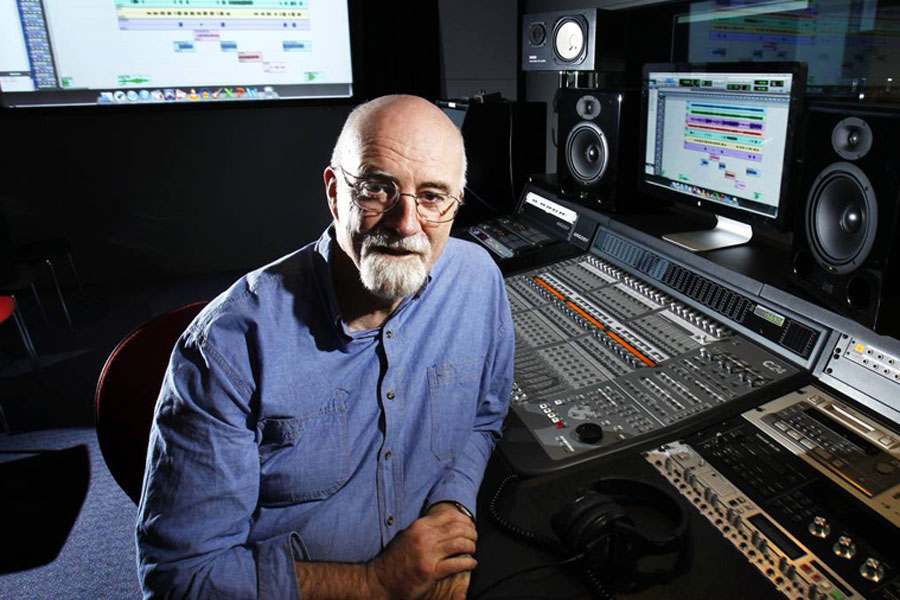Researcher Highlights
Cultivating creativity
Phillip McIntyre
How does the creative process work? How are novel and valued things bought into being? Can we use evidence-based examinations of creativity to increase our ability to generate unique and valued products, processes, and ideas?

Professor Phillip McIntyre is a Communication and Media scholar from the School of Creative Industries looking to answer these questions through his research on the phenomenon of creativity.
His interest in the systems that facilitate or obstruct the creative process and creative enterprise, was sparked in part by the impact of the digital revolution on song writing.
Prof McIntyre is recognised as a ‘founding voice’ of the field of research now called song writing studies. An active APRA registered songwriter, he spent considerable time ensconced in the music industry before coming to academia.
“Just recently I was invited to the UK to help launch the Arts and Humanities Research Council funded Songwriting Studies Research Network”, Dr McIntyre explains.
“This whole area of study is now off and running, and I’m pleased to have been a crucial part of that.
Canary in a coal mine
Exploring the concepts of creativity and innovation in song writing sparked a thirst for a broader scope of investigation.
“Given that the music industry has acted as a canary in the coal mine for all the digital changes the creative industries have been going through, it was not difficult to scale up my investigation from songs to the music industry and from there to the creative industries more generally,” Dr McIntyre explains.
Prof McIntyre now looks at advertising, architecture, film, radio, TV, publishing, visual and performing art, digital media, games, app development and the design sectors of the creative industries.
He argues that creativity, and the systems that facilitate it, extend well beyond the bounds of what is traditionally recognized as art.
Globally, colleagues are using Dr McIntyre’s work not only to inform their study of the Arts but also the investigation of the value of creativity in less obvious fields such as Maths, Engineering, and Science.
How does understanding and quantifying the systems and elements involved in creative enterprise and the ecosystems that spring up around such ventures, aid in the development, maintenance and scaling of creative industries?
Culture hunter
With funding and research partners from industry, government and business, Dr McIntyre and his team have undertaken several years of intensive research concerning Creativity and Cultural Production in the Hunter Region.
“We were recently part of a successful ARC Linkage grant that enabled us to take our innovative approach to creativity and apply it to the mapping of the Creative Industries in the Hunter Region”.
The resultant 546-page report acknowledges the 10,000 workers in the local creativity and cultural production sector, and the $1 billion contribution it makes annually to the regional economy.
The 'Creativity and Cultural Production' report, has been utilised by policymakers and others working in and with these increasingly significant industries - either educationally, politically, economically, or culturally.
The research has had, as a result, a deep impact on the Hunter region, with Dr McIntyre’s team universally lauded for the scope and richness of their work.
Addressing assumptions
Dr McIntyre and team are now working with new partners to transfer and scale their innovative mapping techniques.
“Our current industry partners from five different State Government instrumentalities want to identify regional creative hotspots, find out why they’re successful and then take that information and apply it to a number of struggling regions in their own states", he says.
“That will make a difference”.
From mentoring individuals in his field to influencing local government policy to informing the discourse of national creative bodies, making a difference is what Dr McIntyre is all about.
A dedicated teacher, he believes it is the contemporary and translational nature of his work that resonates within the student body.
“Once our students realize they are being taught the latest cutting edge research by an international expert in this area, and one who has also worked professionally for some time in the creative industries, they respond very well indeed,” Dr McIntyre says.
“Most importantly they take this knowledge into their own future oriented working lives, where they soon come to realize how valuable all that research on creativity is to them”.
“It makes their creative lives so much easier”.
Dr McIntyre explains that the biggest barrier faced by critical thinking, evidence-based researchers in his area face is a very well-entrenched set of cultural assumptions about creativity.
“In research terms at least, creativity is increasingly seen as an emergent property of a creative system in action. That is exciting for me as a scholar as this is the approach I’ve been using for some time”.
The University of Newcastle acknowledges the traditional custodians of the lands within our footprint areas: Awabakal, Darkinjung, Biripai, Worimi, Wonnarua, and Eora Nations. We also pay respect to the wisdom of our Elders past and present.
